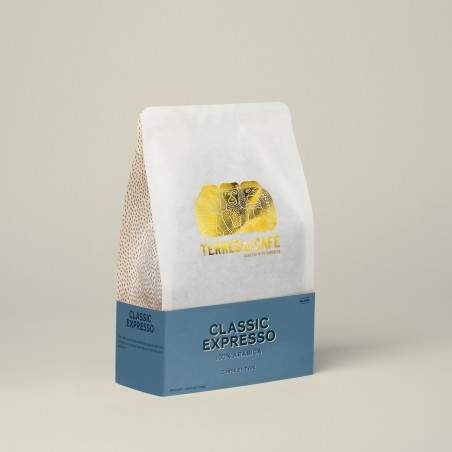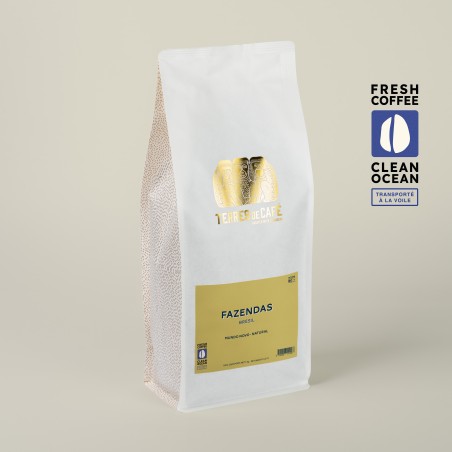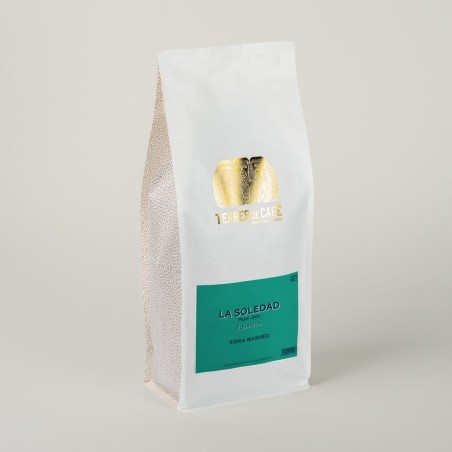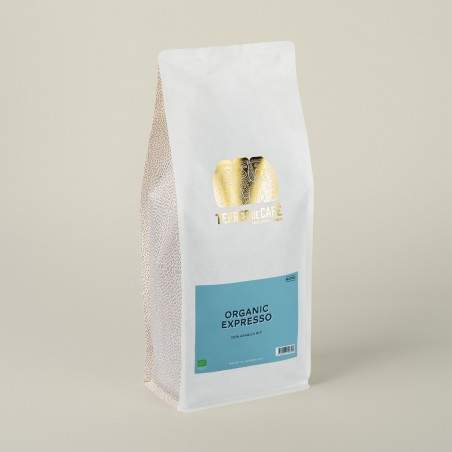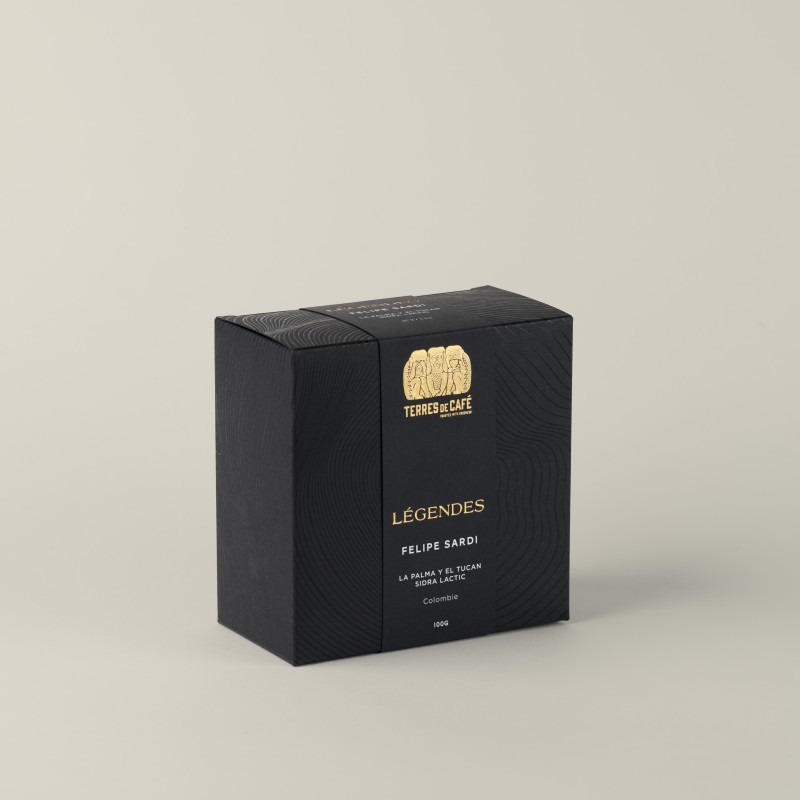

Felipe Sardi - La Palma y El Tucan - Sidra Lactic - Légendes
Felipe Sardi is a coffee intellectual and a passionate advocate of agriculture that respects the living world. His project is the result of a global vision of the industry, from production to the cup. La Palma y El Tucan is run entirely according to permaculture principles, with no inputs from outside the farm. With a scientific approach to fermentation, Felipe produces fine, limpid, subtle coffees that have won several World Barista Cup awards.
Christophe Servell
The coffees in the Légendes collection are only roasted once a week, guaranteeing a very fresh roast at all times. As a result, the time between order and dispatch can be up to 8 working days.
Sourcing note
This farm is a didactic example of a sustainable specialty coffee farm, entirely focused on top-quality production. Established some fifteen years ago on a deforested area, Felipe Sardi has undertaken to regenerate the soil and forest cover. Each plot is planted with a variety of coffee trees and cover trees. Today, the farm is a forest. It houses a bio-factory that produces natural fertilizers not only for itself, but also for partner farms that entrust their coffee cherries to the farm's teams for fermentation and quality control. La Palma y El Tucan is also a restaurant and hotel lodge, set in the midst of this lively, productive landscape.


The lactic fermentation orchestrated at La Palma y El Tucan is based on rigorous observation of natural processes and multi-variable adjustment. It produces a coffee with a very sweet, buttery profile, with lactic acidity and a velvety texture, resulting from the increased concentration of lactic acid.
The process involves the use of micro-organisms, such as lactic acid bacteria, which operate in anaerobic conditions (absence of oxygen). These bacteria break down complex sugars to generate organic acids, notably lactic acid. Fermentation takes place under controlled oxygenation conditions (low and medium), with monitoring of parameters such as pH, Brix (a measure of sugar concentration), and temperature.
Lactic fermentation process:
Cherry fermentation: 70 to 110 hours, depending on the dynamics of the process and the evolution of variables. This stage enables the development of lactic acid and other organic acids.
Pulping and fermentation/oxidation in the mucilage: After pulping, a short 24- to 48-hour fermentation in the mucilage increases the concentration of organic acids.
Washing and drying: The coffee is then washed and sun-dried for 25 to 40 days, before final mechanical drying to refine the product.



